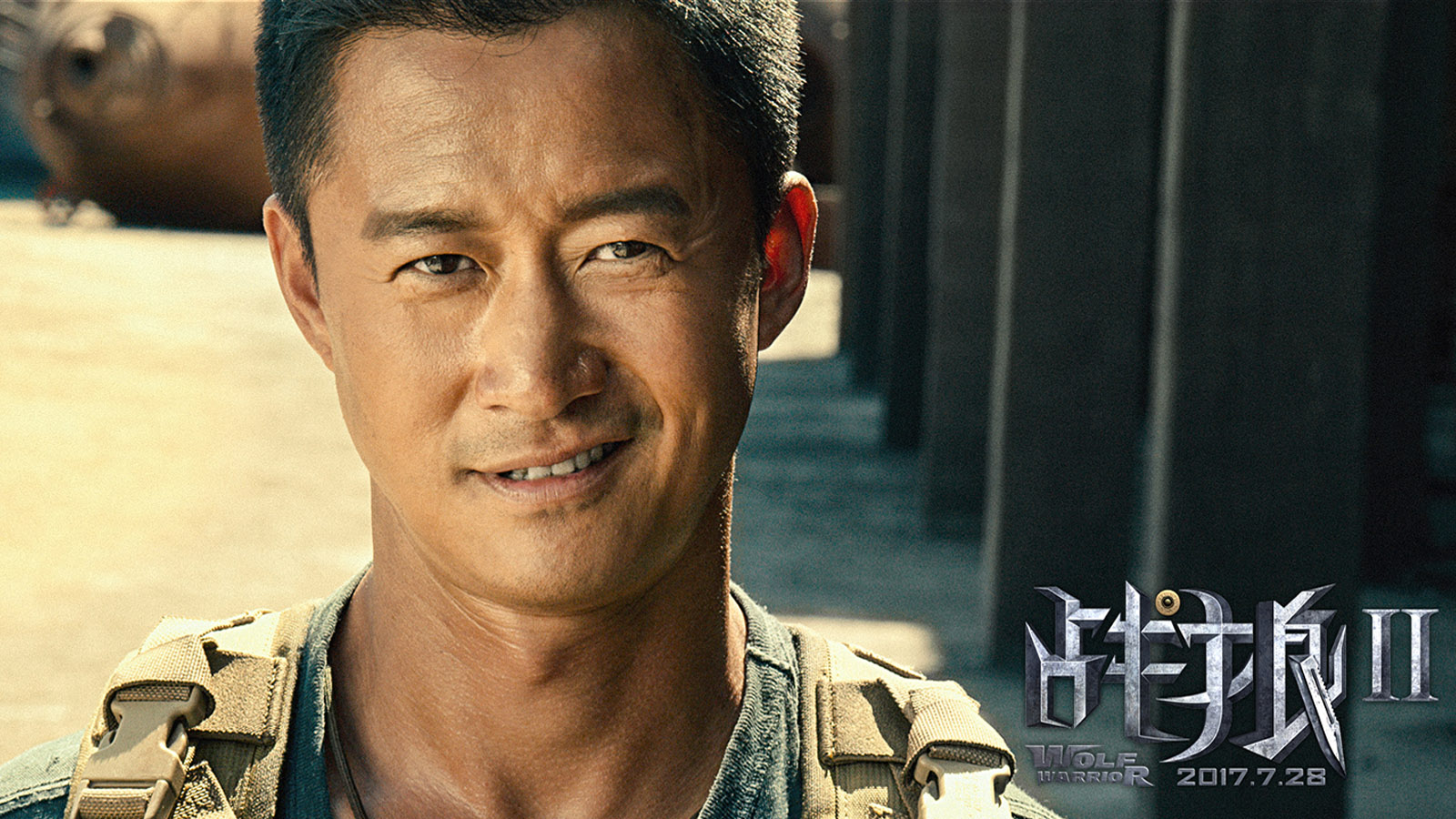Why “Wolf Warrior 2” was (and still is) China’s Biggest Movie
Some facts on Wolf Warrior 2: It is the highest grossing film in the history of China. It places 58th in the top 100 grossing films of all time. It is the only Chinese film on that list. It is also the only non-Hollywood film on that list.
It is, effectively, the most popular movie in the history of Chinese media. And as an English high-school newspaper in China, it is only right for us to analyze this phenomenon as it approaches its one year anniversary, and determine why this particular move struck a chord with Chinese audiences.
Wolf Warrior 2 is about Leng Feng (Jing Wu), a discharged former member of Chinese special operations military unit “Wolf Warriors.” Feng has made a new life for himself in Africa as a mercenary, providing security to a freighter against hijackers, while constantly searching for clues as to the individuals that killed his fiancée. When the country is suddenly thrown into turmoil by a civil war, Feng is presented an opportunity to find the mercenaries responsible for his loss.
It’s easy to write this movie off as just another shallow action film, as it rolls out with unrealistic action scene after another. Every confrontation between the flawless Wu and the mysterious European mercenaries is explosive and carnal. Wu and his military friends disable large crowds in seconds. In one memorable scene, Wu holds up a wire mesh to block a rocket-propelled grenade and redirects it to hit an enemy tank.
Despite his many superhuman feats, the main character of Leng Feng felt desperately uninteresting. Clearly inspired by the likes Die Hard or Top Gun, Leng Feng was too stereotypically perfect; he was physically adept, popular with the locals, and possessing an extraordinary amount of self-control, as well as impeccable alcohol tolerance.
“To put it in academic terms, Feng is a static character,” commented Chinese Drama teacher Ms. Pan Song. “It’s true that he is relatively uninteresting. This movie isn’t about a weak soldier becoming strong, this soldier is already skilled … since this movie takes from the individualistic heroes of Hollywood, Leng Feng having no flaws is normal.”
However, what makes it impressive is that this is a dumb Chinese action flick. Action flicks starring a single overpowered hero have traditionally had no place in Chinese media, and the fact that a Chinese-language movie that matches the technical level of Hollywood blockbusters has been produced, it surprised and pleased Chinese watchers immensely.
Audience will also notice shortly into the movie how the setting of Wolf Warrior 2 serves its appeal. The setting being Africa, there is plentiful opportunity to boast of China’s influence on a global stage, and just as one action scene is pumped out after the next, one segment of Chinese fan service is dished out one by one.
To present some examples of this Chinese fan service, in the middle of the Red-Scarf rebels’ rampage of a city, special forces emerge from the Chinese consulate and stop them in their tracks. At a camp for people sick with a highly infectious disease, the lead doctors are Chinese. The Chinese military is portrayed as highly skilled and powerful, and the European mercenaries are ordered multiple times not to kill any Chinese due to their affiliation with the United Nations Security Council. “[The makers of Wolf Warrior] have noticed the international stage, and they have the confidence to express it to the world,” said Ms. Song.
Patriotism is no stranger to Chinese media, but it works especially well in this movie because it realizes a dream that the Chinese had but never expressed very well through cinema. Being one of the weakest economies for much of the twentieth century, it has ascended to the top of the world, a position many Chinese have barely had time to relish. This sets the stage for a remarkable transition in Chinese media, from desperate heroes fighting the Sino-Japanese War to movies where the Chinese military could be = the looming powerful force. Wu can unabashedly present the might of China in this movie, as it is a reality many Chinese are willing to enjoy.
“For the audience, this awakens their sentiments for their people. Chinese audiences’ passion for their country and the sense of safety in their country is intensified,” said Ms. Song. “It also gives a sense of collaboration and affection for our partners in Africa.”
For many, patriotic images in the movie, such as African terrorists being too afraid to shoot down Chinese tanks and muscly European mercenaries being annihilated by Feng, all seem meaningless. But for those with a Chinese cultural background, it’s a declaration, or perhaps a celebration, of what China is today.
Jing Wu, both director and star of the movie, said in an interview, “I wanted to tell people … that although we are not living in a peaceful time, we do live in a peaceful country. People should be happy about that. They should focus less on the negative things. Cherish the moment.”
What better quote to embody a patriotic, over-the-top gun-fest of an action movie?
Featured Image Courtesy of Deng Feng International Media

